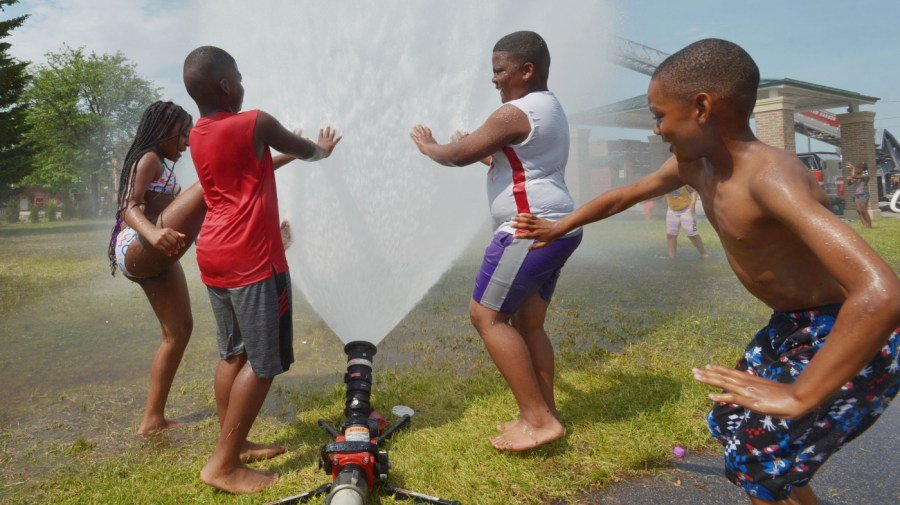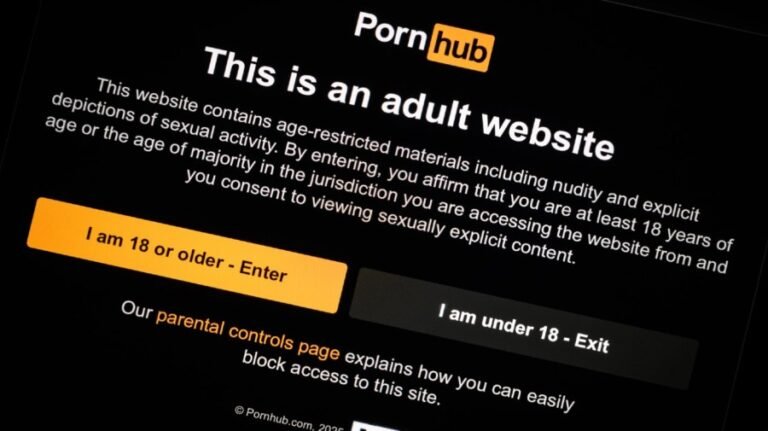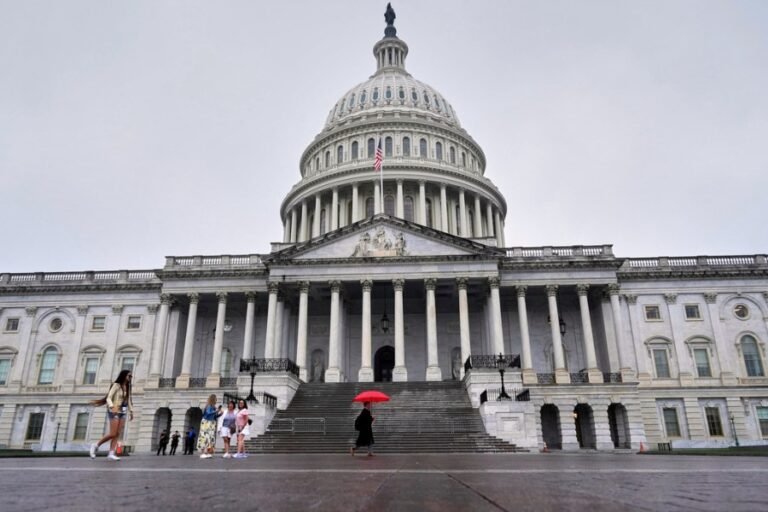
This week’s heat dome put a big hole in summer school.
Summer classes and other events for students across the country were disrupted by swelteringly high temperatures, a warning of climate-related education disruptions to come.
Along with canceled events, experts say unprepared districts will see repercussions including lower test scores and more behavioral problems if plans are not put in place to handle the heat.
Several schools in New York closed early this week due to the extreme heat, including more than 20 in the Hudson Valley region.
The Washington Central Unified Union School District in Vermont, which was supposed to close for the summer on June 24, shut down four days early due to the weather, according to local outlet WFFF Burlington.
“The year has ended with quite a bit of excitement, with all the activities and then some really hot days. It was a little abrupt, and I hope that everyone can stay just a little cooler these days,” Superintendent Steven Dellinger-Pate told the community.
Record-breaking heat has hit multiple states and cities around the country to kick off the official summer season.
New York City hit 100 degrees for the first time in a decade. Extreme heat warnings have gone out for Philadelphia; Newark, N.J.; Washington, D.C. and dozens of other metropolitan areas.
“One of the most important things to just acknowledge is that with our changing climate, heat waves like this are going to be more common occurrences, and heat waves in general are going to be more intense than they’ve been in the past. So, I think it’s really important for schools to just recognize that this is going to be a reality that we are facing,” said Laura Schifter, fellow with the Aspen Institute and director of This is Planet Ed.
In New Jersey, more than 100 people needed treatment at two high school graduation ceremonies due to heat-related illness, with more than a dozen taken to the hospital, according to the community’s fire department, NBC News reported.
In recent years, heat waves at the beginning and end of the school year have increasingly disrupted classes and interrupted activities for student athletes.
At the beginning of the 2023 school year, tens of thousands of students saw school cancelations due to the heat.
Many school facilities are unprepared for such weather, and getting them up to task is a massive undertaking.
Around 41 percent of U.S. schools do not have proper cooling, heating and ventilation systems, according to a 2020 report from the Government Accountability Office.
“Retrofitting all schools so that all classrooms are cool would be a huge one for the nation,” said Kristina Dahl, the vice president for science at Climate Central, adding there is little national data on this issue.
“In the meantime, what school districts can do is have some science-based policies about when they cancel school or release students early so that they’re not in school during the hottest time of day … also educating teachers about the signs and symptoms of heat-related illness so that they can better recognize that in their students would be helpful,” Dahl added.
As climate-related disturbances could become more common, experts urge schools to develop plans; multiple studies have shown the impact of heat and climate disruptions on student learning.
Stanford University research from 2020 showed a decrease in learning associated with an increase in hot school days. Another study out of the University of California, Los Angeles, found temperatures above 85 degrees have a negative impact on test scores and the rate of learning.
“It can make learning very challenging, concentrating very challenging. It can impact students’ ability to focus and concentrate, which can then lead to more disciplinary issues as well for students,” Schifter said.
Concerns about learning retention are already high as the average student is half a grade level behind in reading and math compared to pre-pandemic scores.
Experts say it will take action from local, state and federal leaders to address this issue and ensure schools and students are ready for the climate of the future.
“When we talk to local leaders, a lot of times they’re like, ‘This is not something they’ve had to deal with,’ or they’re dealing with many priorities at once,” said Kristen Hengtgen, program director for UndauntedK12, a nonprofit focused on climate change and schools.
“And so, it’s helpful to see states lead in this space. And, of course, a lot of these systems need funding. So that funding may come from the states or local districts, but this is a really serious problem. I think with leaders being proactive, they can help implement cooling systems that are more energy efficient, and hopefully, save them money in the long term,” Hengtgen added.


